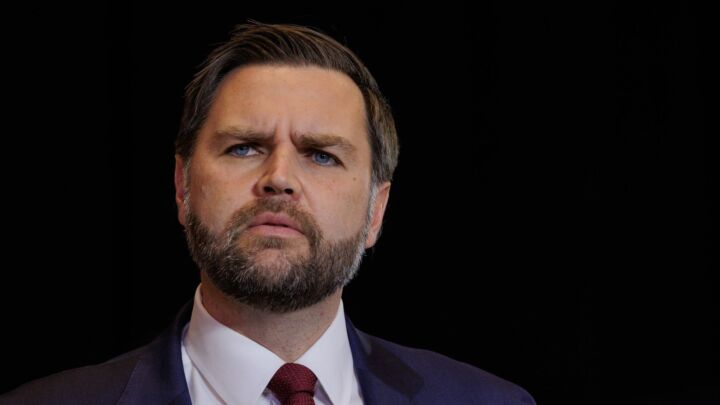The Rachel Reeves non-scandal is a sad sign of the times
The great leaders of the past would never survive this technocratic purity test.

Want unlimited, ad-free access? Become a spiked supporter.
The careers of Britain’s leaders are being cut short for increasingly petty reasons. Former prime minister Boris Johnson had to quit after being ‘ambushed by a cake’, deputy prime minister Angela Rayner resigned over an underpaid tax bill and chancellor Rachel Reeves is on the rocks after her letting agent failed to obtain the correct licence to rent out her family home.
Judging by the scale of the outrage inspired by these ‘scandals’, the media and much of the British public clearly believe that such misdemeanours are serious enough to disqualify the offenders from high office. It is precisely our obsession with bureaucratic perfection that is robbing Britain of the inspiring leaders we need.
When criticising current politicians, we often hark back to the leaders of the past, invoking their brilliance in comparison to today’s bland technocrats. But a cursory glance through the last millennium reveals that few of our great British heroes would have passed 21st-century purity tests.
Let’s start with Edward the Confessor (1003-1066), whose assasination of Welsh rebel Rhys ap Rhydderch would have set tongues wagging in 2025. In modern parlance, Edward was guilty of ‘punching down’. Had he never heard of devolution?
Henry II (1133-1189) was one of the most successful English kings of all time, bringing land, wealth and power to the realm. But his wife, Eleanor, was a bit too feisty for Henry’s liking. In an act that stinks of ‘coercive control’, Henry locked her up, demonstrating a toxic masculinity that, in 21st-century Britain, would have had him turfed out of Royal Lodge.
Richard the Lionheart (1156-1199) had a penchant for crusading in the Middle East, betraying a deep-rooted Islamophobia. Free Palestine!
Henry V (1386-1422) was guilty of war crimes, murdering a few thousand unarmed French prisoners at Agincourt. For his sins, Henry should probably be erased from our history books. At least he had no issues with small-boat crossings.
In a gross failure of child-safeguarding procedure, Richard III of York (1452-1485) arranged for the killing of the young princes in the Tower (probably). Elizabeth I (1533-1603) was hardly any better, executing her rival, Mary Queen of Scots. Internalised misogyny? Guilty as charged.
The great Oliver Cromwell (1599-1658), Lord Protector of the Realm, ordered the massacre of Irish soldiers and civilians. By 21st-century standards, Cromwell was guilty of genocide.
Admiral Lord Nelson (1758-1805) might have saved our nation from Napoleonic tyranny, but old Horatio really let himself down by committing war crimes at Naples, abandoning his wife and disobeying a direct order at the Battle of Copenhagen.
The Duke of Wellington (1769-1852) did not support the 1832 Reform Act, which expanded the franchise beyond the landed gentry. Wellington declined to show a lifelong commitment to equality and diversity, a failure that would see him cancelled today.
Queen Victoria (1819-1901) oversaw the expansion of the British Empire, opening herself up to accusations of racism. Sir Winston Churchill (1874-1965), a probable alcoholic, regularly shouted at his subordinates. Churchill was a workplace bully of the worst kind – eat your heart out, Priti Patel.
These are the men and women who made Britain great. All committed the kind of mistakes and even crimes that make our current crop of politicians look like saints, yet they were far more effective leaders than anyone in British public life today.
No doubt some humour-free Twitter troll will falsely accuse me of defending genocide. But my point is that the very character traits that make someone a great leader – courage, decisiveness, ruthlessness, self-belief, charisma – have a dark side, too. Conversely, those who display an unshakeable commitment to following the rules may be dependable administrators but are rarely – perhaps never – inspiring and effective leaders.
And to those who claim that the problem with Reeves, Rayner et al is ‘the hypocrisy’, all human beings are hypocrites; it is an inescapable part of the human condition.
Why do we find it so hard to accept that leaders – even good ones – err? Why don’t we give our politicians the opportunity to learn and improve from their mistakes, rather than turfing them out at the first misdemeanour? Our Christian heritage teaches us to prize individual virtue and integrity, and rightly so. Yet it is a misinterpretation of this heritage to believe that personal foibles – even significant ones – should bar someone from public office.
If we want to entice courageous, inspirational and charismatic people into politics, we must stop obsessing over petty mistakes that have no bearing whatsoever on someone’s ability to serve our country well. The reason that we are now led by dull technocrats is that capable but colourful characters are ousted by outrage before they even make it into parliament. If we are ever to escape this current economic, demographic and cultural doom loop, Britain once more needs politicians with courage and conviction, qualities that will inevitably be accompanied by at least an element of personal chaos. Technocratic purity is rarely the mark of a great leader.
Miriam Cates is a GB News presenter, senior fellow at the Centre for Social Justice and a former Conservative MP.
£1 a month for 3 months
You’ve hit your monthly free article limit.
Support spiked and get unlimited access.
Support spiked – £1 a month for 3 months
spiked is funded by readers like you. Only 0.1% of regular readers currently support us. If just 1% did, we could grow our team and step up the fight for free speech and democracy.
Become a spiked supporter and enjoy unlimited, ad-free access, bonus content and exclusive events – while helping to keep independent journalism alive.
———————————————————————————————————————————–
Exclusive January offer: join today for £1 a month for 3 months. Then £5 a month, cancel anytime.
———————————————————————————————————————————–
Monthly support makes the biggest difference. Thank you.










Comments
Want to join the conversation?
Only spiked supporters and patrons, who donate regularly to us, can comment on our articles.